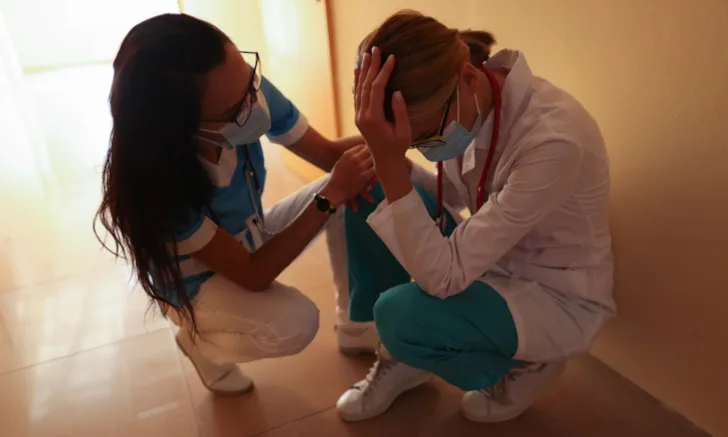
Dear Second Opinion,
Last week I grabbed a syringe filled with an IV anesthetic agent and gave it to a canine patient. The syringe had been prefilled and labeled for another, much larger patient. I didn’t notice the mistake until I had injected the entire syringe. Unfortunately, the patient died from the overdose.
I contacted my liability insurance, and they are helping me navigate the legal aspects. My team has also discussed how we can prevent future mistakes like this, but I’m having trouble dealing with the emotional aspect.
I am so angry at myself, and this event weighs heavily on my mind to the point I find myself scared to make any medical decisions. I don’t know if I can get past the voice in my head telling me to just give up and that I shouldn’t be practicing medicine. I’m not sure I can be happy at work anymore.
Can I ever move past this? How?
—Drowning in Doubt
Dear Drowning in Doubt,
I’m terribly sorry for what happened. It sounds like you are taking the right steps with your team. Mistakes are best dealt with by asking why it happened and how can it be prevented from happening again. I recommend a checklist system for anesthesia as outlined in The Checklist Manifesto by Atul Gawande.
You have addressed the physical element, but the emotional aspect is what’s really haunting you. First, let me say there is no clinician, or person in general, that has not made an error. The difference between good and bad clinicians is not whether they have ever made a mistake, it is whether they have learned from that mistake and resolved to become a better doctor because of it.
Gain more nerve-calming advice from Dr. Benaryeh, along with 5 other seasoned veterinary professionals, in Practical Guidance for New Veterinarians, a free e-book available for download now.
Many years ago, one of my patients died from a pop-off valve that was left closed. That case has stayed with me my entire career, but it also led me to develop a 3-part checklist system and resolve to prevent such future mistakes. In many ways, we are a safer hospital and I am a better clinician because of that error.
We can learn from our mistakes, and we can learn the most from our biggest mistakes. This incident continuing to bother you shows you are a good person. It’s a very sad situation, and there is no changing that. If you stop practicing medicine there will be no meaning to the loss, but if you turn this into the reason you become a better clinician, you give value to the loss of the patient.
Sincerely,
Barak Benaryeh, DVM, DABVP
If you are experiencing feelings of hopelessness, despair, or other crisis, please get help immediately. In the US, dial 988 or access the National Suicide Prevention Lifeline's Crisis Chat here. Not One More Vet has a list of additional resources here. You are not alone, and help is available.